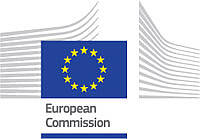Legal problem and the case:
In Poland, an example of a sanctioned entity is Go Sport Polska sp. z o.o., a chain of sports stores located in all major Polish cities. Go Sport was included in the sanctions list because it is affiliated with one of the largest sports store chains in Russia called Sportmaster. All assets of this company had been frozen, which resulted in the need to close all stores of this company. The management board filed a petition for bankruptcy. The court faced a legal dilemma as to whether it could declare the company bankrupt, as all its assets had been frozen and subject to administrative restrictions. Neither the Polish law nor the European regulation contain a single provision on the bankruptcy of an entity subject to restrictive measures.
Thus, the problem arose as to whether the property subject to sanctions (frozen assets) could be subject to judicial enforcement proceedings since it had been placed under the compulsory management of a Member State.
Solution:
Finally, the bankruptcy of Go Sport Polska was announced by the Bankruptcy Court in Warsaw (case no. WA1M/GU/203/2022). However, it was found that neither the trustee (syndyk) nor the judge-commissioner has full independence in conducting the bankruptcy proceedings. For every action of the trustee, including incurring liabilities and settling the costs of bankruptcy proceedings, the consent of the state administration body is required (in Poland - consent of the Head of the National Revenue Administration). The consent of the Head of the National Revenue Administration is also required for the sale (liquidation) of assets or the entire enterprise. Moreover, the consent of the Head of the National Revenue Administration will also be required for the payment of funds from the bankruptcy estate in the implementation of the division plans. In the decision declaring bankruptcy, the Court indicated: “After the declaration of bankruptcy, the receiver and the judge-commissioner will have to work out a course of action that will allow the decision to impose sanctions on the debtor to be respected and will enable the objectives of the imposed sanctions to be achieved”.
Legal grounds:
Go Sport Polska – the current status of the case:
The current status of the bankruptcy proceedings of Go Sport Polska sp.z o.o. can be tracked on the website of the National Debt Register (Krajowy Rejestr Zadłużonych). Bankruptcy proceedings are conducted only in an ICT form which in particular concerns the obligation for creditors to submit claims electronically via the ICT system for handling court proceedings.
- prepared by Bartosz Sierakowski



